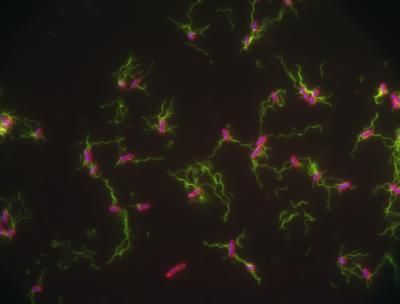Merck Serono's Kuvan Recommended for European Approval
CHMP Issued Positive Opinion Recommending Marketing Authorization of Kuvan(R) for the Treatment of hyperphenylalaninemia in Patients With phenylketonuria or BH4 Deficiency
Advertisement
Merck Serono, a division of Merck KGaA announced that the Committee for Medicinal Products for Human Use (CHMP), the scientific committee of the European Medicines Agency (EMEA), issued a positive opinion for Kuvan(R) (sapropterin dihydrochloride) as an oral treatment for hyperphenylalaninemia (HPA) in patients with phenylketonuria (PKU) or tetrahydrobiopterin (BH4) deficiency.(1) With this positive opinion, the CHMP recommends the marketing authorization of Kuvan(R) by the European Commission. Kuvan(R) had previously received Orphan Medicinal Product designation from the EMEA as the first orphan drug for the treatment of HPA.
PKU and BH4 deficiency are rare diseases caused by genetic defects in the metabolism of the amino acid phenylalanine, resulting in hyperphenylalaninemia, i.e. abnormally high levels of phenylalanine in the blood. Hyperphenylalaninemia can cause serious brain damage in infants and children, and neurocognitive impairment in teenagers and adult patients. To date, there is no approved drug for the treatment of this condition inEurope. The only alternative for PKU patients to manage their disease is a diet highly restricted in phenylalanine. Dietary non-adherence can result in a decline in mental and behavioral performance. There are approximately 35,000 patients diagnosed with hyperphenylalaninemia due to PKU or BH4 deficiency in the European Union.(2)
"The efficient therapy of phenylketonuria and BH4 deficiency is still an unmet medical need, and Merck Serono hopes to be able to provide alternative treatments for these rare diseases," said Roberto Gradnik, Executive Vice President Commercial Europe at Merck Serono. "The availability of Kuvan throughoutEuropewill allow the patients suffering from these serious, debilitating diseases to better control their phenylalanine levels and at the same time improve their quality of life."
Data from two international, double-blind, randomized, placebo-controlled Phase III clinical trials in patients with hyperphenylalaninemia due to PKU show that treatment with Kuvan(R) reduces blood phenylalanine levels and increases dietary phenylalanine tolerance and hence may reduce the need to limit phenylalanine intake in patients' diet. The most frequently reported potential undesirable effects were headache, runny nose, diarrhea, vomiting, sore throat, cough, abdominal pain, stuffy nose and low levels of phenylalanine in the blood. These adverse events were generally mild to moderate and transient.
The CHMP reviews drug applications for all 27 countries in the European Union as well asIceland,LiechtensteinandNorway. The CHMP recommendation will now be considered by the European Commission, which will deliver its final decision on the granting of the marketing authorization.
Kuvan(R) is being developed in partnership with BioMarin Pharmaceutical Inc. Under the terms of the agreement with BioMarin, Merck Serono has exclusive rights to market Kuvan(R) in all territories outsideNorth AmericaandJapan. BioMarin has exclusive rights to market Kuvan(R) in theUSAandCanada; in theUSA, it received approval from the Food and Drug Administration for the treatment of BH4-responsive PKU inDecember 2007. InJuly 2008, Asubio Pharma Co., Ltd. (a subsidiary of Daiichi Sankyo), received marketing approval from the Japanese Ministry of Health, Labour and Welfare for a label extension of Biopten(R), which contains the same active ingredient as Kuvan(R), for the treatment of patients with PKU.
Footnotes
(1) Kuvan(R) is indicated for "the treatment of hyperphenylalaninaemia (HPA) in adult and paediatric patients of 4 years of age and over with phenylketonuria (PKU) who have been shown to be responsive to such treatment. Kuvan(R) is also indicated for the treatment of HPA in adult and paediatric patients with tetrahydrobiopterin (BH4) deficiency, who have been shown to be responsive to such treatment."
(2) Kuvan(R) is a potential treatment option in those PKU and BH4- deficient patients who are responsive to BH4 treatment. According to published literature, 20 to 50 % of PKU patients are responsive to treatment with Kuvan(R).




















































